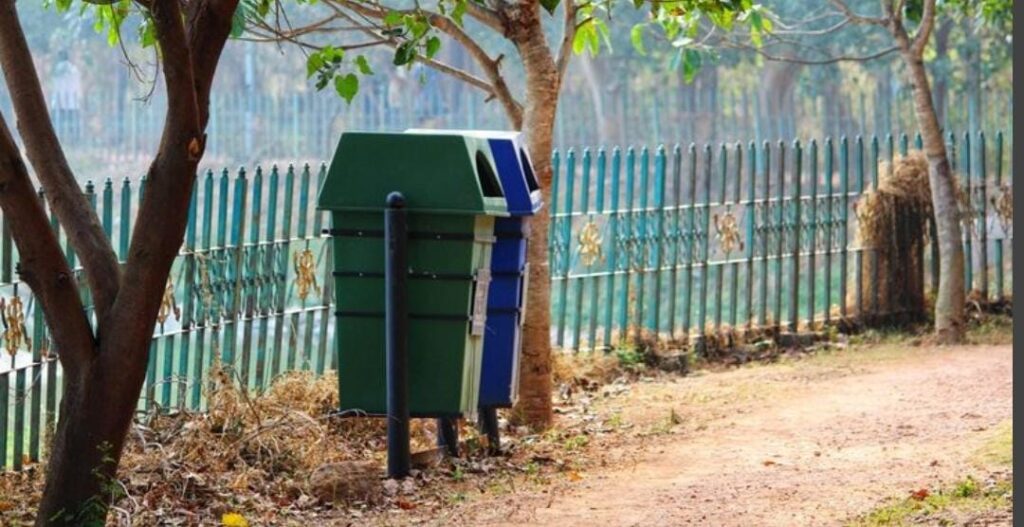Skip bins are one of the most convenient ways to manage waste in Alice Springs. Whether you’re doing a home renovation, garden clean-up, or running a construction project, hiring a skip bin makes rubbish disposal easy and stress-free.
However, it’s important to know what can and can’t go into a skip bin in a alice springs. Putting the wrong items in your bin can lead to extra fees, safety hazards, and even fines under local waste regulations. This guide will help you understand which materials are allowed, which are restricted, and how to dispose of prohibited items responsibly.
Why It Matters
Alice Springs, like many parts of the Northern Territory, has strict waste management laws. Skip bin companies are required to dispose of rubbish safely and follow environmental guidelines. If you mix prohibited materials with general waste:
- Your skip bin may not be collected until the issue is fixed.
- You could face extra sorting fees from the provider.
- In serious cases, you may be fined for illegal dumping.
Knowing the rules upfront saves you time, money, and stress.
What You Can Put in a Skip Bin
Skip bins are versatile and can handle a wide range of waste types. Here’s what’s generally accepted:
1. Household Waste
Perfect for decluttering, spring cleaning, or moving house.
- Old furniture and mattresses
- Clothes, toys, and general rubbish
- Kitchenware, appliances (non-hazardous)
- Cardboard, paper, and packaging
2. Green Waste
Garden and landscaping clean-ups produce a lot of organic waste that skip bins can handle.
- Grass clippings and leaves
- Branches, shrubs, and tree trimmings
- Soil and small amounts of dirt (check with provider for weight limits)
3. Construction and Renovation Waste
For tradies and DIY renovators, skip bins are perfect for building debris.
- Timber, plasterboard, and tiles
- Bricks, concrete, and pavers
- Metal offcuts and scrap materials
Tip: Heavy waste may require a specific type of bin with a weight limit.
4. Office and Commercial Waste
Businesses in Alice Springs also use skip bins for clean-ups.
- Old desks, chairs, and filing cabinets
- Paper, packaging, and non-hazardous materials
- Shop fit-out waste and shelving

What You Can’t Put in a Skip Bin
Certain materials are strictly prohibited due to safety and environmental concerns. These items require special handling and cannot be mixed with general waste.
1. Hazardous and Toxic Materials
- Asbestos
- Chemicals, pesticides, and poisons
- Gas cylinders (even empty ones)
- Paint, oils, and solvents
- Batteries (car or household)
These materials need to be disposed of at approved hazardous waste facilities.
2. Medical Waste
- Syringes, needles, and sharps
- Bandages and biohazard materials
These must be taken to medical waste disposal points to prevent health risks.
3. Flammable or Explosive Items
- Fuel, petrol, and diesel
- Fireworks or explosives
- Aerosol cans (full or partially full)
These items pose serious safety risks to waste collectors and landfill sites.
4. Large Tyres and Car Parts
Some providers allow tyres at an extra cost, but many do not. Always check first before placing them in your bin.
How to Dispose of Prohibited Waste in Alice Springs
If you have waste that can’t go into a skip bin, you still have safe disposal options:
- Hazardous waste drop-off points: The Alice Springs Town Council provides locations for safe disposal.
- Specialised recycling centres: For car batteries, tyres, and scrap metal.
- Council clean-up days: Keep an eye on community waste collection events.
Contact your skip bin provider for advice — many companies offer extra services for hard-to-dispose-of items.
Tips to Avoid Extra Fees
- Ask upfront: Before booking, confirm with the provider what they do and don’t accept.
- Separate your waste: Keep prohibited items out of the bin from the start.
- Don’t overfill: Skip bins must be level-loaded for safe transportation.
- Read your hire agreement: Check for hidden costs or rules about specific waste types.
Final Thoughts
Hiring a skip bin in Alice Springs is a simple way to manage waste, but only if you follow the rules. By knowing what you can and can’t put in your bin, you’ll avoid extra costs, keep your clean-up safe, and help protect the environment.
When in doubt, always ask your skip bin company — they’re there to guide you and ensure your waste is handled correctly. With proper planning, your project will run smoothly, and your rubbish will be disposed of the right way.


















